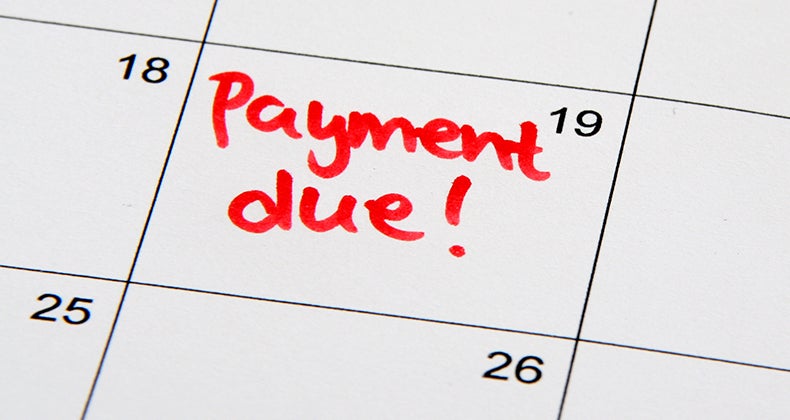When should I file for bankruptcy?

Key takeaways
- Chapter 7 and Chapter 13 bankruptcy are common options for individuals with unmanageable debt.
- Bankruptcy may be the right choice if you’re facing overwhelming debt, frequent creditor calls or risk of foreclosure.
- It’s important to weigh the pros and cons: Filing for bankruptcy can hurt your credit score for up to 10 years, potentially impacting your ability to secure loans or credit in the future.
- Consulting with a bankruptcy attorney can help you navigate your options and decide if bankruptcy is the best path for your financial recovery.
Filing for bankruptcy is a serious decision with long-lasting financial and emotional consequences. While a bankruptcy filing isn’t something you should take lightly, it might be the right decision to help you regain control of your financial life.
If you’re struggling to manage overwhelming debt and cannot foresee a way to repay it, bankruptcy might provide the fresh start you need. Understanding how bankruptcy works and when to file for bankruptcy is critical in determining whether it’s the right step for you.
How bankruptcy works
Bankruptcy is a legal process that helps individuals overwhelmed by debt eliminate or reorganize what they owe.
For individuals, there are two main types of bankruptcy: Chapter 7 and Chapter 13.
Chapter 7 bankruptcy involves the liquidation of assets. In Chapter 7, the debtor’s non-exempt assets are sold, and the proceeds are used to pay creditors. Most unsecured debts, such as credit card balances or medical bills, are discharged and no longer have to be paid. However, some debts, such as student loans and child support, are usually not dischargeable. To qualify, individuals must pass a means test showing their income is below a certain threshold.
Chapter 13 bankruptcy involves reorganizing your debts. In Chapter 13, debtors keep their assets but must follow a court-approved repayment plan that lasts three to five years. This plan allows them to catch up on missed payments — especially on secured debts such as mortgages or car loans — while paying a portion of unsecured debts. After completing the plan, remaining eligible debts are discharged.
Both types of bankruptcy provide an automatic stay, which stops collection activities, wage garnishments and lawsuits while the case is ongoing.
Bankruptcy is designed to be a last resort when you have exhausted all other options. It stays on your credit report for years, making it difficult to reestablish your creditworthiness and access new credit in the future. But you might determine that the trade-offs are worth it to help you regain financial stability.
When to file for bankruptcy
Here are some key indicators that it may be time to file for bankruptcy.
You have overwhelming debt with no ability to pay
The primary reason many people consider bankruptcy is that they cannot keep up with their debts. When, for instance, credit card balances spiral out of control due to high interest rates and minimum payments barely touch the principal, it may be time to explore bankruptcy. Likewise, a major illness or injury can lead to overwhelming medical bills that you cannot realistically pay.
Bankruptcy allows you to discharge your debts (Chapter 7) or restructure them in a more manageable way (Chapter 13), providing a chance to start fresh without the pressure of insurmountable bills.
You face the threat of collection actions and lawsuits
If creditors are hounding you with collection calls or threatening to file lawsuits against you, it may be time to consider bankruptcy. Being sued over unpaid debts can lead to wage garnishments, bank levies and even property liens.
Filing for bankruptcy halts most collection activities — at least temporarily. The automatic stay stops creditors from pursuing further legal action, which gives you breathing room to reorganize your debts or discharge them.
You’re threatened with foreclosure or repossession
If you’re in danger of losing your home to foreclosure or your car to repossession, bankruptcy might help you save these assets. Chapter 13 bankruptcy is designed to help individuals catch up on missed payments by creating a repayment plan over three to five years.
This can help you stop foreclosure and keep your home as long as you make your bankruptcy payments on time.
Your wages are being garnished or your bank accounts are frozen
If your wages are being garnished or creditors have frozen your bank accounts, you may want to file for bankruptcy to stop these aggressive collection tactics. When a creditor wins a lawsuit against you, they can often garnish a portion of your paycheck or freeze your bank account to collect the debt. Filing for bankruptcy immediately stops wage garnishments and may allow you to regain access to your accounts.
You’re using debt to stay afloat
Relying on credit cards or loans to cover daily expenses while making only minimum payments can trap you in a cycle of debt.
“I recommend people meet with a bankruptcy lawyer when their monthly income doesn’t allow them to pay their basic living expenses and continue making payments on their debts as they come due,” says Jay Fleischman, a consumer debt relief attorney and founder of the Fleischman Consumer Law Center.
If you’re maxing out your credit cards or taking on new loans just to keep up with bills, you may need to consider bankruptcy as a way to stop the vicious cycle.
You’re considering debt settlement or debt management programs
Before filing for bankruptcy, many people explore debt settlement or debt management programs. While these options can work for some, they may not be effective if you have large amounts of debt and your creditors are unwilling to negotiate. Debt settlement can also hurt your credit, and the forgiven debt could be considered taxable income by the IRS.
If debt settlement or a debt management plan is not feasible or does not offer enough relief, bankruptcy could be the better alternative for you.
Pros and cons of declaring bankruptcy
Bankruptcy can be a valuable tool for regaining financial control, but it comes with significant drawbacks that must be carefully considered.
Pros
- Debt relief: Bankruptcy can discharge most unsecured debts, such as credit card debt, medical bills and personal loans. This can provide you with a fresh financial start.
- Automatic stay: Filing for bankruptcy triggers an automatic stay, which immediately halts most collection efforts, including wage garnishments, foreclosure, repossession and creditor harassment, providing temporary protection while the bankruptcy case is processed
- Protection of assets: In Chapter 13 bankruptcy, individuals can keep their property while creating a manageable repayment plan. Some states also allow exemptions in Chapter 7, protecting specific assets like some equity in your home or car, tools you might need for work and personal items such as clothing.
- Emotional relief: For many, bankruptcy alleviates the mental stress and anxiety associated with insurmountable debt, offering a structured path forward.
Cons
- Credit score impact: Bankruptcy can stay on your credit report for up to 10 years. This can significantly hinder your ability to secure loans, mortgages or credit cards. Even if you can obtain a loan or credit, a lower credit score often results in higher interest rates on future borrowing, and rebuilding credit can take time.
- Loss of assets: Under Chapter 7 bankruptcy, non-exempt assets such as homes, cars or other valuable items may be liquidated to pay off creditors. While certain assets are protected, this process may still lead to notable losses.
- Long-term consequences: Some debts, such as student loans, alimony, child support, and taxes, generally can’t be discharged in bankruptcy. This may leave you with significant financial obligations even after completing the bankruptcy process.
Alternatives to filing for bankruptcy
Bankruptcy should be used as a last resort, and some alternatives, such as credit counseling, are required before you are allowed to file. You may also want to look into professional debt relief options, including reputable debt relief companies.
Credit counseling
Before you can file for Chapter 7 or Chapter 13 bankruptcy, you are required to attend credit counseling. Your credit counselor will go over your options.
If you decide not to file for bankruptcy, a credit counselor can still create a debt management plan for you. Similar to Chapter 13, a debt management plan is a systematic approach to paying off unsecured debt in three to five years.
A debt management plan will affect your credit score less than bankruptcy, and you will have ongoing support from a certified professional if you need to change payments, negotiate with your creditors or can’t make a payment.
Check the National Foundation for Credit Counseling to find a qualified nonprofit credit counseling agency.
Tighten your budget
A bare-bones budget may help you reorganize your priorities and come up with the funds to get yourself out of debt. If there isn’t much wiggle room, consider selling some items or finding another source of income. It may not be ideal, but these can be short-term ways to make ends meet while you work on getting your debt under control.
Ask your creditors for relief
Reach out to your creditors and see if you can negotiate better terms or settle for less than you owe. Be clear about your ability to repay. Because bankruptcy will discharge your debts, your creditors may consider settling for less to ensure payment. This isn’t always the case, however, and it largely depends on your financial situation. Even if you default on a debt, you may be able to avoid collections or defer payments.
Debt consolidation
Some debt relief companies offer debt consolidation, for which they charge a fee. You might decide it’s worth it to have professional guidance, but you can also take out a debt consolidation loan on your own. If you’re considering bankruptcy, you’ll likely need to look for a debt consolidation loan for bad credit.
Shop around for the best debt consolidation loan rates before applying. You’ll also want to be sure the payment is affordable; otherwise, you may just be delaying more intensive debt relief.
The bottom line
If you’re overwhelmed by debt, facing constant creditor calls or at risk of losing your home, bankruptcy can provide a fresh start.
However, it’s important to weigh the long-term consequences, such as damage to your credit score and potential asset loss. Alternatives such as debt consolidation or negotiation with creditors may offer relief without the drawbacks of bankruptcy.
If you’re considering bankruptcy, a good first step is to consult with a bankruptcy attorney.
“We encourage people to talk to a bankruptcy attorney early to ensure that you get the right information and make the right decision early,” says Ashley Morgan, an attorney who has filed more than 1,000 bankruptcy cases. “Talking to a bankruptcy attorney does not mean you have to file.”
Whatever you do, don’t just sit on a mound of debt and anxiety, hoping it will go away. Chances are, it will just snowball into bigger debt. Take steps immediately to learn your options, ask for help and find a plan for paying off debt that’s right for you.
Why we ask for feedback Your feedback helps us improve our content and services. It takes less than a minute to complete.
Your responses are anonymous and will only be used for improving our website.






